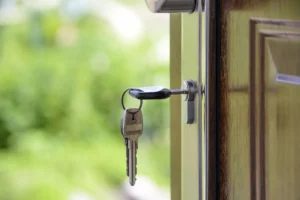Unless you own the home you live in, chances are you are paying rent to a landlord. There are lot of myths and misunderstands about how rent works in Ontario, so we’ve created this video to explain some of the common and not-so-common questions that people have about rent.
First, how is rent decided?
When a rental unit is vacant, the landlord and the person who wants to rent the unit will negotiate the rent and decide what services are included, such as hydro, wifi and parking. After the tenancy begins, the rules about rent can be found in the Residential Tenancies Act, or RTA for short.
Increases to Rent
The landlord is legally permitted to increase the rent once every 12 months, but the landlord has to give the tenant a 90 day written notice of the increase. If the tenant thinks that the new rent is too high, the tenant can give the landlord written notice of termination and move out before the rent increase begins.
In most cases, a landlord can usually only increase a tenant’s rent by the guideline set each year by the Ministry of Municipal Affairs and Housing. We’ll talk about some of the exceptions to that rule later in this video.
The 2019 rent increase guideline is 1.8%, and the guidelines applies to most private residential rental accommodation covered by the RTA. Landlords are only legally allowed to increase the rent by the percentage allowed in the guidelines for that year, no matter how much the landlord did or did not increase the rent in previous years.
Let’s use a quick example to demonstrate the maximum increase allowed by the guideline for 2019. Let’s say the monthly rent of an apartment is $1,000 beginning June 1, 2018. With proper written 90 days’ notice to the tenant, the landlord could increase the rent 12 months later on June 1, 2019. A rent increase of 1.8% on $1,000 equals $18. Therefore, the new rent on June 1, 2019 could be as much as $1,018. Landlords can apply for permission from the Landlord and Tenant Board, or LTB for short, to increase the rent by more than the guideline amount.
Larger increases with LTB permission
In fact, a landlord can apply to the LTB to approve a rent increase above the guideline for any of the following reasons:
• The landlord’s costs for municipal taxes have increased by an extraordinary amount.
• The landlord did extraordinary or significant renovations, repairs, replacements or new additions to the building or to individual units. This type of work is called a “capital expenditure”.
• The landlord’s costs for security services increased, or the landlord began providing security services for the first time.
Exceptions to limits
It’s important to keep in mind some of the exemptions to the guideline. For example, rental units first occupied for residential purposes after November 15, 2018 are exempt from the rules required in the guideline. Landlords of these units must still give tenants a notice of rent increase 90 days in advance with a LTB-approved form, and they can only increase the rent once every 12 months, but there is no limit on the amount of the rent increase.
Also, the guideline is not applicable to the following types of units:
• vacant residential units • social housing units • nursing homes • commercial property
Rent Receipts
Now, let’s move on to some other topics regarding how rent works in Ontario. Many tenants are unaware that a landlord is required by law to give a tenant receipts for rent or any payment or deposit if the tenant asks for them. This includes payment of rent arrears. The landlord cannot charge for this receipt. Landlords also have to give rent receipts to former tenants during the first year after their tenancy ends.
A rent receipt must include:
• the address of the rental unit
• the name of the tenant(s)
• the amount and date for each payment and what it was for (e.g. rent, rent deposit, arrears)
• the name of the landlord
• the signature of the landlord or the landlord’s agent
Receipts are useful when a tenant has actually paid the rent, but what happens when rent is late or isn’t paid at all?
Late payment and non-payment of rent
Obviously, rent is considered late if it is not paid by the day that it is due. For example, if the rent is due on the first day of the month and it is not paid by that day, it is late.
If a tenant does not pay rent on the date that it is due, the landlord can give the tenant a Notice to End a Tenancy Early for Non-payment of Rent the day after the rent was due. If a tenant pays rent monthly, this notice must give the tenant 14 days to pay the rent due or to move out. If the rent is not paid, and the tenant does not move, the landlord can apply to the LTB for an order that:
• requires the tenant to pay the rent that is owing, and
• evicts the tenant if they do not make the entire payment by a deadline
If a tenant’s rent cheque is returned NSF, a landlord can ask the tenant to pay for the charges the landlord has to pay to the bank, plus an administrative charge of up to $20. Landlords can also claim any NSF cheque charges if they apply to the LTB for arrears of rent.
If a tenant is often late with the rent, the landlord can give a Notice to Terminate a Tenancy at the End of Term. Daily or weekly tenants must be given notice 28 days before the end of their lease or rental period. In all other cases, the tenant must be given notice 60 days before the end of their lease or rental period.
The landlord can apply to the LTB for an order evicting the tenant right after giving the tenant the Notice to Terminate a Tenancy at the End of Term. A hearing will be held and both sides will have a chance to give their side of the story.
Automatic Rent Reductions
On a more positive note, there are situations when rent may actually be reduced. When a landlord’s property taxes are reduced by more than 2.49% from one year to the next, the rent also usually needs to be reduced. This is called an automatic rent reduction. When this happens, the city will usually send out a Notice of Rent Reduction to the landlord and the tenants letting them know by how much the rent will be reduced starting January 1.
Tenants do not have to get permission from landlords to reduce the amount of rent that tenants pay, but tenants should still speak to their landlords about it. Another area of confusion is rent deposits.
Rent Deposits
A landlord can collect a rent deposit as long as they ask for it on or before the day that the landlord and tenant enter into the tenancy agreement. The rent deposit cannot be more than one month’s rent or the rent for one rental period, whichever is less. For example, if rent payments are made weekly, the deposit cannot be more than one week’s rent; if rent payments are made monthly, the deposit cannot be more than one month’s rent.
The rent deposit must be used for the rent for the last month before the tenancy ends. It cannot be used for anything else, such as to pay for damages.
If the rent increases after a tenant has paid a rent deposit, the landlord can ask the tenant to top up the rent deposit so that it is the same as the new rent. The landlord can ask for this money even after a tenant gives notice to terminate the tenancy. The landlord must pay the tenant interest on the rent deposit every 12 months. The percent interest is the same as the rent increase guideline that is in effect when the interest payment is due. The guideline is set each year by the Ministry of Housing. If the landlord does not pay the interest owed to the tenant when it is due, the tenant can:
• deduct the interest from a future rent payment, or
• file a Tenant Application for a Rebate
Instead of paying the tenant the interest, the landlord can reduce the amount needed to update the rent deposit (so that it equals the current rent) by the amount of interest owed.
Key Deposits
Landlords are also allowed to ask for a key deposit, but only if:
• the deposit is refundable, and
• the amount of the deposit is not more than the expected cost of replacing the key(s) if they are not returned to the landlord.
The landlord must give the deposit back when the tenant turns in their key(s) at the end of their tenancy.
Landlords are also allowed to charge tenants for additional keys that tenants request (for example, if a tenant wants an extra key or if a tenant has lost their key), but the charge cannot be more than the actual cost of the keys. A tenant does not have to pay for new keys when the landlord decides to replace the lock with a new one, but the landlord may ask for a refundable deposit for the new keys.
Damage deposits
Many tenants are surprised to learn that a landlord cannot collect a damage deposit to pay for damage done to the unit. Also, a landlord cannot use the last month’s rent deposit to cover damages in the unit. The rent deposit can only be used for last month’s rent before the tenancy ends.
If the landlord finds that a tenant has damaged the unit or caused damage to the building, the landlord can give the tenant a Notice of Termination or ask them to pay for the damages. If the tenant doesn’t pay, then the landlord can apply to have the LTB determine if there are damages and what should be done about them.
Feel free to contact us for a free consultation.
#rent #rentdeposit #keydeposit #damagedeposit #rentincrease #residentialtenanciesact #automaticrentdeduction #landlordandtenantboard



